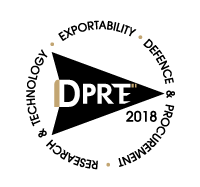The Defence Science and Technology Laboratory (Dstl) is working in partnership with Government Communications Headquarters (GCHQ) and the Alan Turing Institute – the national Institute for data science – on a number of defence challenges that exploit the power of data science.
As part of this work, Dstl took part in a Data Study Group, a regular series of events run by the Alan Turing Institute in which researchers work on real-world data science challenges over the space of a week. Dstl contributed a project for the Data Study Group to explore whether machine learning could be used to identify code vulnerabilities. The aim was to develop potential practical solutions; such as improved detection of software vulnerabilities that might decrease software resiliency or be exploitable by potential hackers.

Official Event Partners: Dstl
Around seventy data science researchers took part in the Data Study Group, drawn from universities from around the UK and with specialisms ranging from machine learning, computer science and deep learning.
Technical support for those participating was provided by Dstl staff, contributing and actively supporting the study groups.
Results are expected to be applied in real world situations and to indicate where further work with The Alan Turing Institute is required.
Glen Hart, Technical Lead for Dstl, said: “This was, in effect, a data-centric hackathon where the brightest minds tackled some of the biggest data issues for defence today. It’s fantastic to be partnering with the Institute and fascinating to see how different approaches can help defence, security and beyond.”
Dstl are event partners at Defence Procurement, Research, Technology & Exportability (DPRTE) 2018, which takes place at Cardiff’s Motorpoint Arena on 27 March.
Don’t miss out on this fantastic chance to attend, sponsor or exhibit at DPRTE 2018, book now at www.dprte.co.uk/book-now
The post Dstl looking to exploit the power of data science appeared first on Defence Online.







